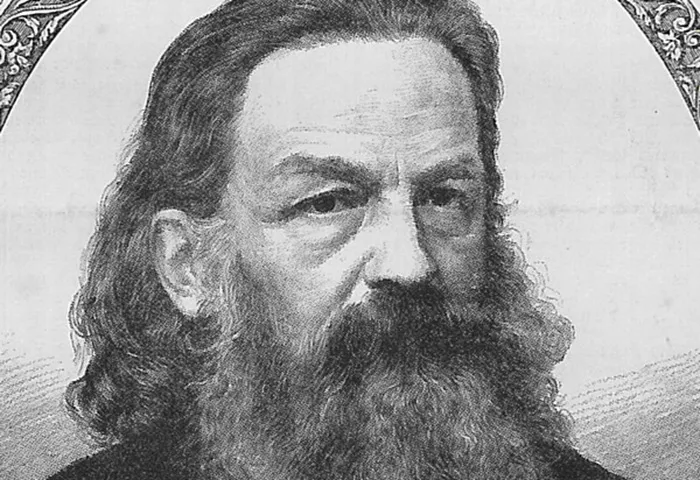Hermann Kletke was a 19th-century German poet known for his lyrical and narrative poetry. While his name may not be as widely recognized as that of Johann Wolfgang von Goethe or Heinrich Heine, his work holds a significant place in the literary tradition of German poetry. His contributions to German literature, particularly in the Romantic era, showcase the cultural and poetic transformations of the time. This article explores his life, work, and influence, while also drawing comparisons to other poets of the same period.
Hermann Kletke
Born in 1813, Hermann Kletke was deeply immersed in the literary currents of his time. His poetry reflects the themes and stylistic tendencies of German Romanticism, a movement that emphasized emotion, nature, and individual experience. Little is known about his personal life compared to more prominent poets, yet his literary output speaks volumes about his dedication to the craft of poetry. His works often incorporated folklore, historical elements, and deep sentiment, aligning with the broader trends in 19th-century German poetry.
The Context of 19th-Century German Poetry
The 19th century was a transformative period for German poetry, marked by the influence of Romanticism, political upheaval, and the emergence of Realism. The century began with the dominance of Romantic poets such as Novalis and Eichendorff, whose works focused on nature, spirituality, and the sublime. As the century progressed, German poetry saw the rise of more socially and politically engaged literature, with poets like Heinrich Heine blending Romantic lyricism with sharp political critique.
Hermann Kletke’s poetry fits within this transition. His early works embraced Romantic themes, but as the socio-political climate of Germany changed, his poetry also reflected a shift towards more structured and reflective forms. Unlike Heine, who was often satirical and politically engaged, Kletke remained within the realm of lyricism and narrative storytelling.
Themes in Hermann Kletke’s Poetry
Several recurring themes define Kletke’s work:
1. Nature and Romantic Ideals
Kletke’s poetry frequently depicted landscapes, seasons, and the beauty of nature, a hallmark of Romantic poetry. His verses often explored the relationship between human emotion and the natural world, echoing the works of Eichendorff and Brentano.
2. Folklore and Mythology
Similar to poets such as Ludwig Uhland, Kletke integrated folklore and historical legends into his poetry. This tradition was vital in 19th-century German poetry, as it helped construct a national identity through literary expression.
3. Melancholy and Longing
Like many Romantic poets, Kletke’s work often conveyed a sense of longing, nostalgia, or melancholy. This theme aligns with the German Romantic concept of “Sehnsucht,” an untranslatable term describing deep yearning.
Comparison with Other 19th-Century German Poets
Hermann Kletke’s work can be understood more clearly when compared with some of his contemporaries:
Hermann Kletke vs. Heinrich Heine
While Heine blended Romanticism with political satire and social commentary, Kletke remained more traditional. Heine’s poetry often had an ironic tone, while Kletke’s work was more sincere and emotionally expressive.
Hermann Kletke vs. Joseph von Eichendorff
Eichendorff, one of the most celebrated German Romantic poets, focused on themes of wanderlust and spiritual fulfillment. Kletke’s poetry shares similarities in its admiration for nature but lacks the strong religious undertones present in Eichendorff’s work.
Hermann Kletke vs. Ludwig Uhland
Uhland, a poet and historian, combined poetry with a deep historical awareness. Kletke’s interest in folklore is reminiscent of Uhland, though Kletke’s poetry is less political.
The Legacy of Hermann Kletke in German Poetry
Although Kletke is not as famous as Heine or Eichendorff, his contributions to German poetry remain valuable. His work represents the continuity of Romantic ideals even as German literature transitioned into Realism. His poetry serves as an example of how 19th-century German poets navigated the changing literary landscape while preserving traditional lyrical elements.
Conclusion
Hermann Kletke was a 19th-century German poet whose work embodies the lyrical and narrative traditions of his era. While he may not have achieved the same level of recognition as some of his contemporaries, his contributions to German poetry remain significant. By preserving Romantic themes while adapting to a changing literary world, Kletke provides insight into the broader trends of 19th-century German poetry. His legacy, though somewhat overshadowed, continues to be a part of the rich tapestry of German literary history.

